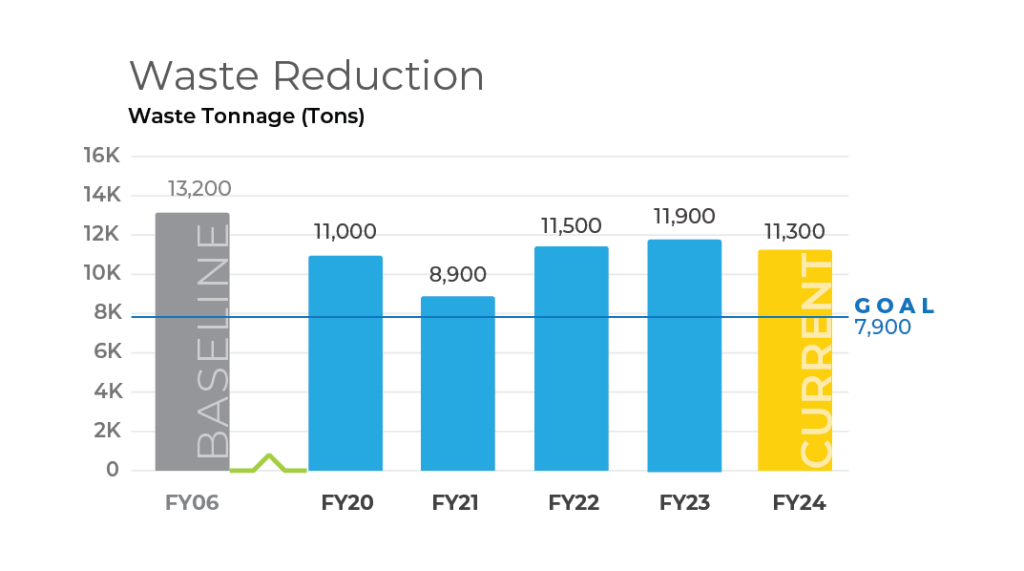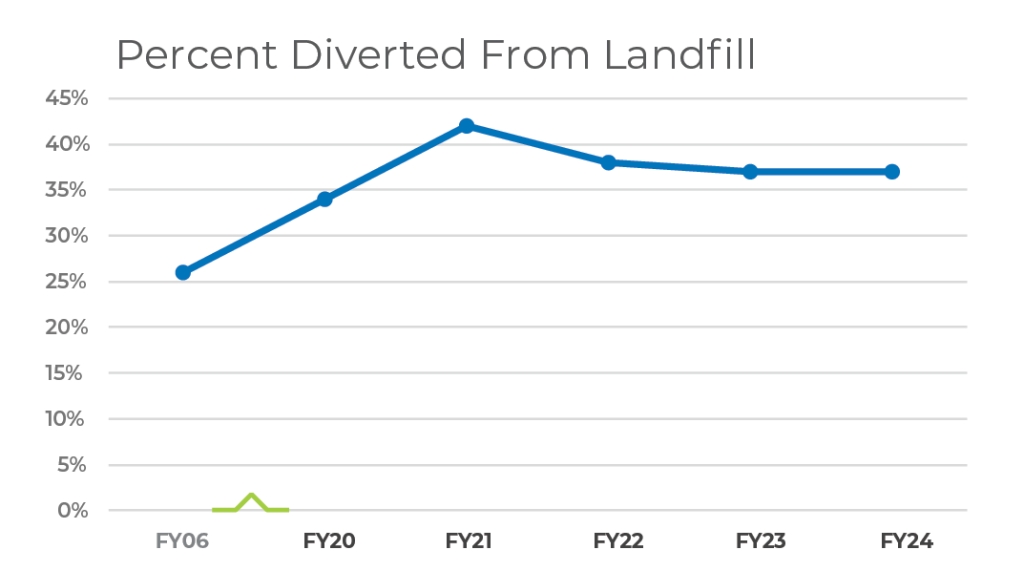
Recent Wins – 2024 Highlights
- Completed several pilots with campus partners: public compost bins in the U-M Libraries, Zero Waste Game Day organic waste composting at the Campus Farm, and special recycling collections for glass and plastic wrap. All will continue to be improved upon.
- Launched a Lab Swap Shop with LSA and continued to expand the Lab Reuse Program and swap events — increasing reuse of these carbon-intensive materials by more than 300%!
- Continued to be a national leader in bin streamlining: moving toward XL bins, reducing deskside bins, and tracking diversion improvements
- Monitored compost collection and engaged residents in the Northwoods Campus Apartments to reduce contamination, increase compost collection, and make composting more accessible to residents.
- Received input from 150+ community members on the proposed U-M Waste Reduction Goals.
- U-M won a national waste reduction award for a student-driven returnable can shelf initiative.
Proposed Waste Reduction Goals
The proposed targets below expand upon U-M’s current waste reduction goal, which is sunsetting in 2025. These targets will more accurately reflect our waste reduction strategy, which supports a circular economy in conjunction with zero waste efforts, while considering the embodied equity, environmental justice, and carbon neutrality impacts of materials management. These targets were informed by a campus waste audit, community input throughout 2024, and a workstream composed of U-M stakeholders.
- Achieve 50% diversion rate by 2030 and a continued 2% increase every year after.
- Additional indicator metrics:
-
-
-
- Single-Stream Recycling capture rate (↑)
- Compost capture rate (↑)
- Construction and Demolition Waste Diversion (↑)
-
- Reduction of Total Waste (↓).
-
- Additional indicator metrics:
-
-
-
- Waste per person (↓)
- Waste per square meter (↓)
- Regulated waste (↓)
- Move-out waste per resident (↓)
-
-
- Improvement of SCIP (Sustainability Cultural Indicators Project) waste indicators (↑)
- Establish a reuse goal by 2030
The proposed goals above apply to the Ann Arbor campus. Flint and Dearborn still need access to the detailed waste data necessary to establish goals. Efforts are underway to enhance data collection.
Next Steps
The Office of Campus Sustainability is currently conducting a waste infrastructure needs analysis.
Michigan Medicine is working on capturing additional waste stream data in order to better inform future waste reduction initiatives.
These proposed goals will go to University leadership for formal approval and incorporation into a broader U-M sustainability strategy.
Questions? Email [email protected].
Supporting Efforts
Take Action
2025 Goal Background
The 2025 waste reduction goal for the Ann Arbor campus, established in 2011, is to reduce waste sent to landfills by 40% by 2025. Here’s some historical information about this goal.




